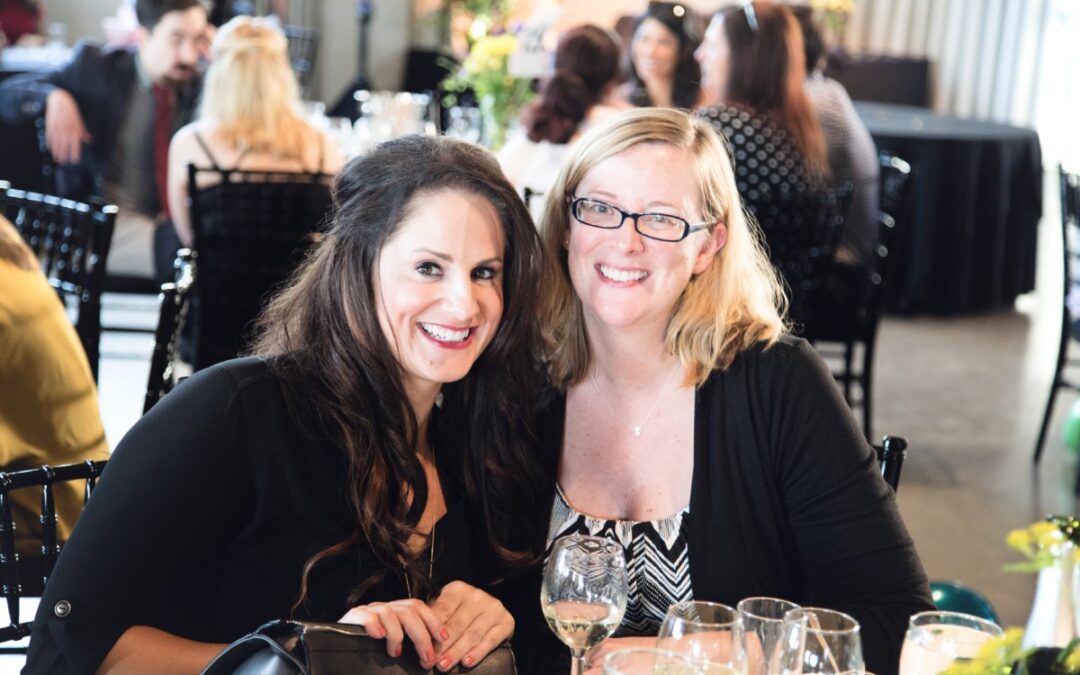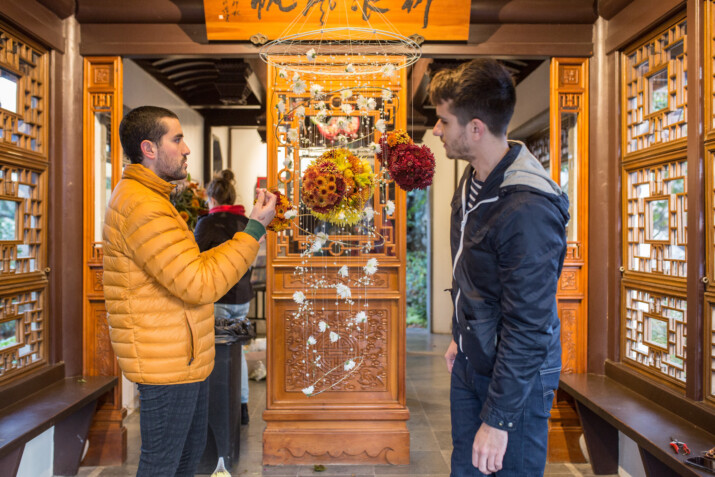Portland, OR. Joined by over 150 supporters, Call to Safety (formerly the Portland Women’s Crisis Line) revealed its new name at an annual fundraising event, UNITE: A Night of Transformation. The benefit on May 11th raised nearly $50,000 to support services for survivors of domestic and sexual violence. SuAnne Triebenbach, Rebecca Peatow-Nickels and Meghan Milinski posed for a photo at the event. (Photo credit, J Tyler Huber)
Call to Safety provides the region’s primary crisis line for survivors, as well as in-person advocacy at hospitals and in the community. The event included two raffles, a Wall of Wine, and a special appeal hosted by Kelly Russel. Brenda Tracy, a survivor turned activist and policy adviser, and the Victim’s Rights Law Center each received one of Call to Safety’s Visionary Awards. The event also served as an opportunity for the organization to reveal its new identity– one that represents a commitment to inclusivity and social justice.
From Call to Safety:
Working to fulfill our mission of ending domestic and sexual violence by providing confidential support services and education to empower our community, Call to Safety provides a comprehensive 24/7 crisis line, follow-up advocacy for survivors, support groups, community outreach and education, and sexual assault medical advocacy. We can support crisis line callers in any language through our international language bank, and connect survivors to local culturally-specific resources or co-advocacy. Call to Safety advocates provide every caller with a needs assessment, peer support, safety planning, crisis intervention, and information and referrals to community resources. Our advocates work with specific populations to provide culturally relevant and specialized services for survivors experiencing homelessness, survivors with developmental and intellectual disabilities, and sex workers. Sexual assault advocacy provides specialized services to survivors of sexual assault.
Our Volunteer and Outreach Program strengthens community relationships and supports all of Call to Safety’s core services, from direct service on the crisis line to development and administrative support. Our training programs and workshops inform the community on the dynamics of sexual and domestic violence, their prevalence in our society, intersecting forms of oppression, and how to be a supportive advocate.
We challenge ourselves to provide responsive programs and services that center on outreach and collaboration. Call to Safety recognizes that we live in an inherently racist culture and that many survivors experience racism on a daily basis. As a continuation of our work to dismantle all forms of oppression and provide equitable services, we are striving to become an anti-racist organization by applying the lens of racial justice to our work with individuals and institutions.
Core Values: EMPOWERMENT
We believe survivors and work to support individuals in empowering themselves as they seek safety and healing. Our approach centers on supporting individuals in gaining power and control over their lives in ways that draw on their experiences, trust their instincts, and build on their strengths. Our outreach and education programs dispel misconceptions and empower community members to dismantle societal and institutionalized oppressions. We acknowledge the impact that vicarious trauma has on our organization’s members and community partners. We celebrate our exposure to vicarious resilience and sustain ourselves by bringing humor, love, and a joyful spirit to each other on this journey.
SURVIVOR-LED SERVICES
Call to Safety advocates work from empowerment, trauma informed, and strengths-based models. Through these models, we meet survivors where they are and trust that they know the best path for themselves towards safety and well-being. Our services offer individuals a safe, non-judgmental space to be heard and heal from trauma. We believe that each survivor is the expert of their own life and we support survivors in making decisions they identify as the right choices for their individual needs. Our staff and volunteers, many of whom identify as survivors themselves, play a vital role in the way we interact with the community around us.
SOCIAL JUSTICE
As advocates for oppressed communities we align our actions with intersectional feminist, anti-oppressive, and economic justice principles. We are committed to putting equity at the forefront of our work bybecoming an anti-racist organization that values inclusive programming, recognizes complex barriers, and values diverse individual and community strengths. We encourage our organization’s members to be mindful of their intersecting positions of privilege and oppression. We recognize the importance of developing critical thinking and taking action. Regular staff members are required to use paid time to participate in racial justice community work. With an economic justice lens we acknowledge the need for improved staff compensation and benefits.
COMMUNITY EDUCATION
Call to Safety is committed to ending oppression by mobilizing our community toward activism for a thriving future. Whenever possible, we provide prevention and outreach information to the community at large. By building relationships with others, we nurture learning opportunities and inspire positive change within our organization, institutions, and communities. We recognize the importance of fostering relationships with the media to raise awareness about violence against all people.
MUTUAL SUPPORT & UNITY
In solidarity with domestic and sexual violence organizations, government programs, and other community organizations, we work toward a common goal of ending violence and oppression. We realize we are all imperfect, well-intentioned human beings trying to make a difference. With this in mind, we agree to take risks, work outside of our comfort zones, listen deeply, ask questions, and support each other in this difficult work.



















